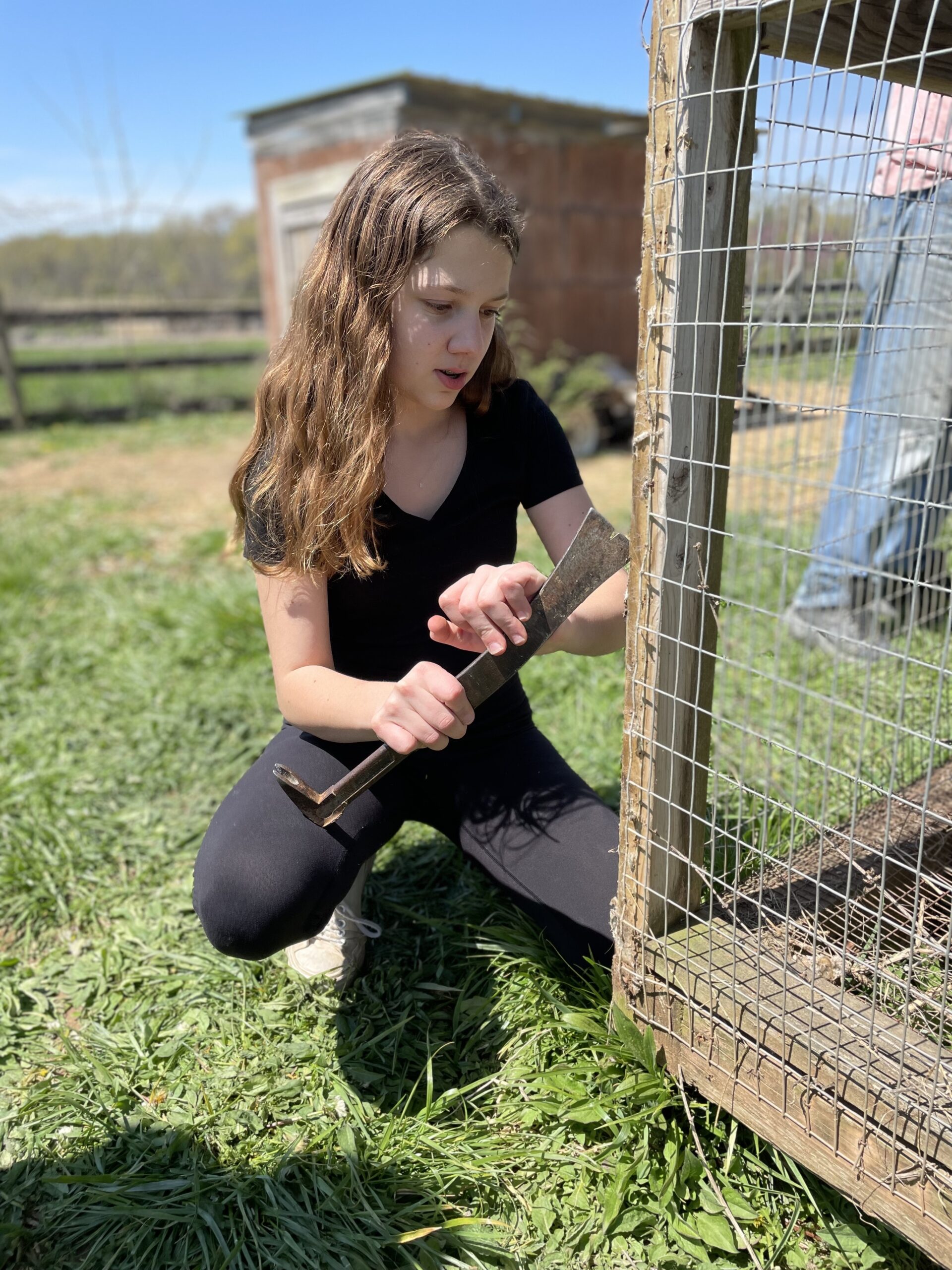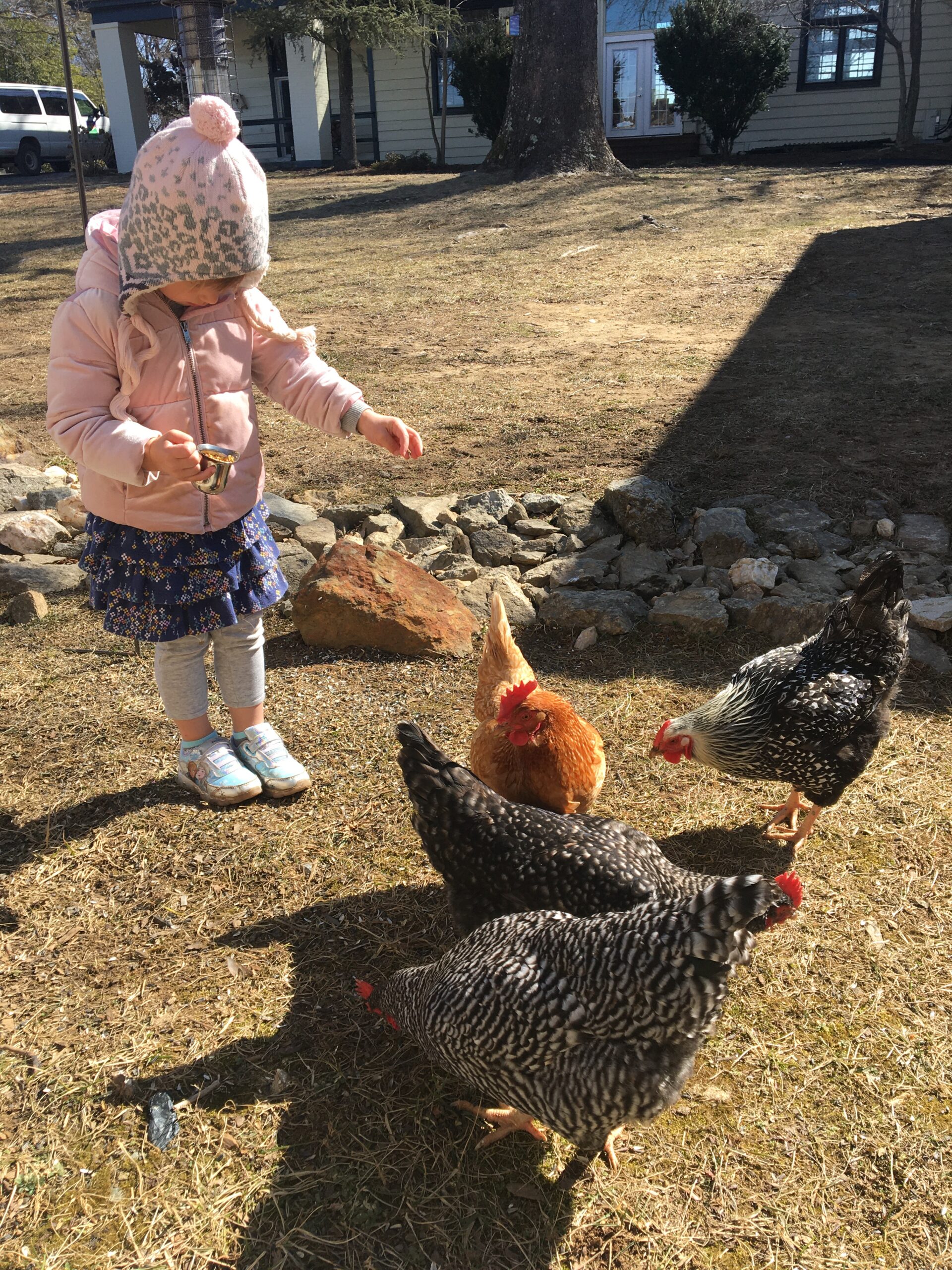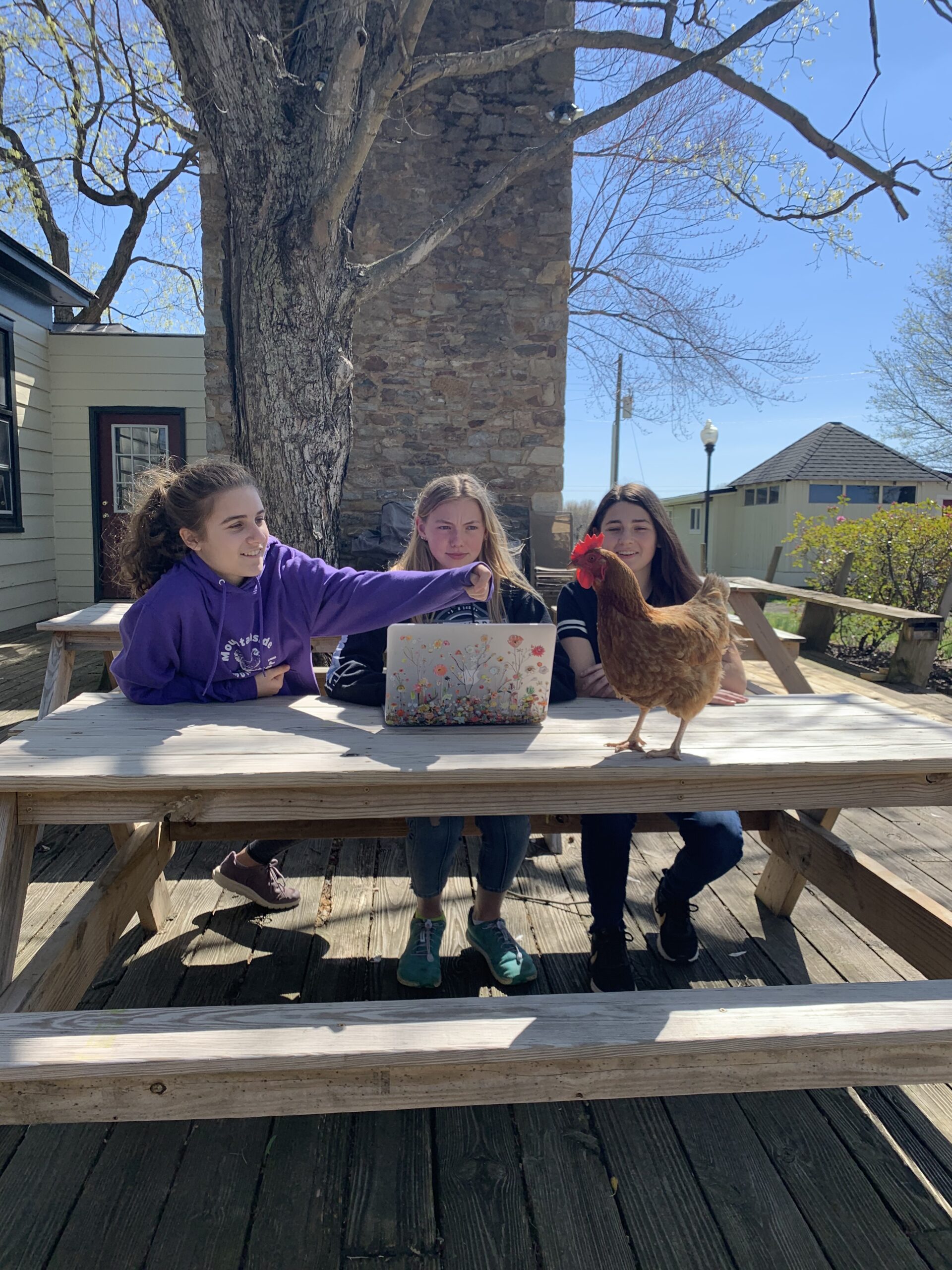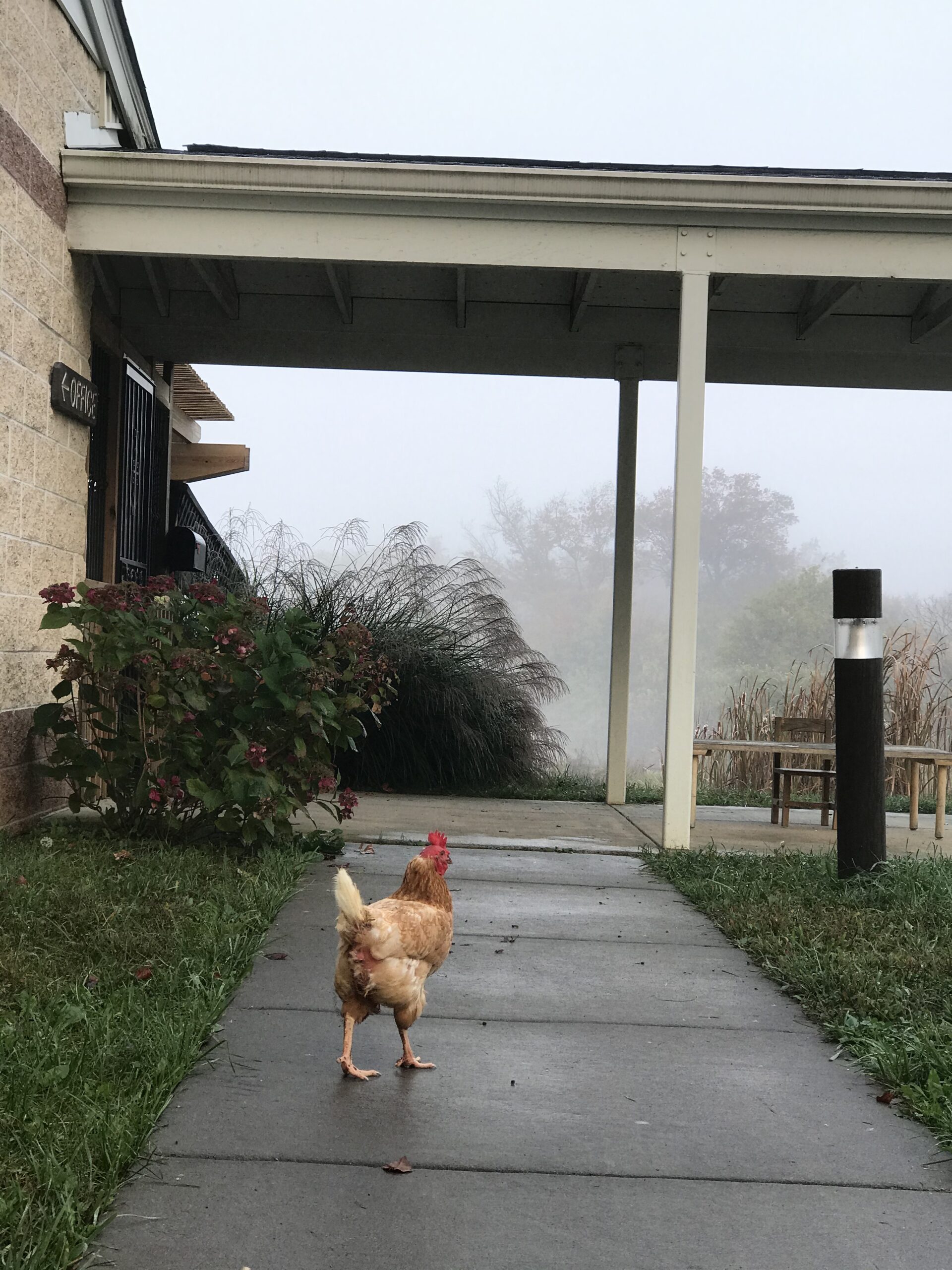Animal Husbandry in Schools: A true farm to school model at Mountainside Montessori
“Adolescents are seeking independence and their place in society. Connecting them with the economy creates real, meaningful work for this developmental stage of life,” says Theo Grayson, Mountainside Montessori’s Adolescent Director, and head of the chicken program. “Farm work provides them with an opportunity to problem solve, make decisions with direct outcomes, and use their physical bodies. At Mountainside, the Adolescents run their own micro-economy businesses, of which the farm animals are a central aspect.”
Students are very involved in every step of the farming process at Mountainside. The Montessori style learning incorporates hands on skills and fostering children’s natural interests, rather than traditional teaching methods. As a result, the Adolescent students make all the decisions regarding the school animals. “The Adolescents have their own bank account which they track their income and expenses in QuickBooks, constantly assessing their profit and loss,” Theo informs us.

“Raising animals is a daily responsibility. The Adolescents rotate chores each day and are committed to coming on weekends and holidays to tend to the animals,” Theo tells us. However, student ownership of the farm to school project goes beyond simple animal husbandry. “The Adolescent students sell their eggs to school families, creating a “pop-up” store at school arrival and dismissal. They set up their sales table, create signs for their products, and use Venmo, Square, cash and checks for financial transactions. In addition to the eggs, they sell pork, and their turkeys are pre-ordered for Thanksgiving.”
Despite challenges with predators, Mountainside Montessori has seamlessly integrated animal husbandry into their existing curriculum. Students are being prepared for today’s workforce through a true farm to table experience—at their school! Although the program is run by the Adolescent class, the entire school reaps benefits from the chickens. “With chicken on campus, all our classrooms and age groups get to interact with the chickens. When the hogs have gone to processing, the chickens receive daily food scraps from all the classrooms’ compost buckets. Every classroom spends time outside each day and the younger classes, in particular, include a visit to the chickens on their daily walks.”
If you are a teacher or parent looking to raise chickens at your school, please reach out to us here!







0 Comments